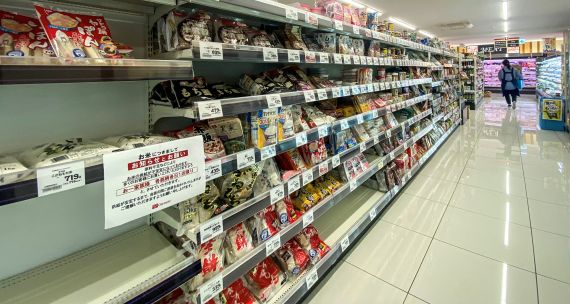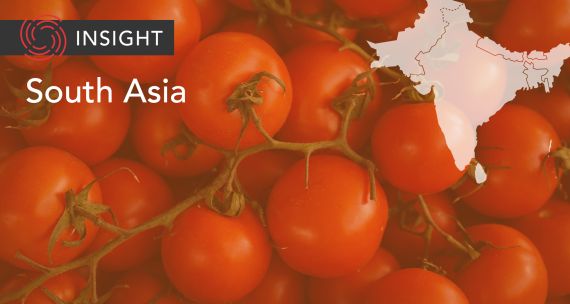The Takeaway
The price of onions, once a staple food in the Philippines but now prized like gold, has skyrocketed since September 2022, increasing 700 per cent and leaving many Filipinos frustrated by the government’s lackadaisical response. Delayed government action to balance supply and demand (and stabilize prices) has exacerbated the situation, impacted farmers and consumers, and potentially benefited traders and cartels, who allegedly engage in hoarding and smuggling. The situation prompted the Philippine House of Representatives to initiate a probe into the origins of the fiasco. The probe began on February 9 and has revealed the failure of the government’s actions, with many questions left unanswered by the country’s Department of Agriculture (DA), which is also led by President Ferdinand Marcos Jr.
In Brief
Onion prices have soared since September 2022, reaching their peak in January 2023 at about C$10-17.50 (400-700 Philippine pesos) per kilogram, significantly higher than the average global price of C$2 per kg.
Two factors are responsible for the inflated price. First: the crop-damaging typhoons occurring, unusually, in the later part of the year during planting season. Second: the ill-timed policies by the DA.
The Marcos government ignored warnings, dating back to October 2022, from multiple agricultural stakeholders about the imminent supply shortage. With the crisis worsening, the government, who resisted importation at the onset of the supply crunch, decided to do so in January, when local crops are typically harvested. Subsequent retail price caps also failed to bring financial respite to Filipinos.
Implications
The investigation into the onion debacle has revealed the shortcomings of the DA and has raised questions about Marcos’s decision to head the department while concurrently serving as president. Marcos has steadfastly resisted calls to appoint a qualified sector-leader in his place, citing his ability to use presidential clout to “speed up” agricultural development in the country. Reviving the agricultural sector was a priority for Marcos during the 2022 election campaign, which led him to oversee the DA. But lawmakers, during the ongoing probe, have suggested that Marcos should step aside and appoint a food security expert to address the crisis.
Preliminary findings by the probe point to data inconsistencies on demand-supply forecasts and the DA’s lack of planning and proactive action. In response, some observers have suggested that Marcos is preoccupied with foreign trips, making eight trips in the past seven months alone, and that his absence could have contributed to policy lapses within the DA.
Farmers, consumers, and low-income Filipinos have been hit the hardest by the onion crisis and, more broadly, by high inflation. On February 8, the Philippine Statistics Authority reported that inflation in the country has increased to a 14-year high of 8.7 per cent, while inflation for the bottom 30 per cent of households by income has increased to 9.7 per cent from 9.4 per cent in December 2022. Most Filipino farmers are in this bottom 30 per cent due to historically unresolved issues of land reform. Farmer groups have expressed concerns over not getting paid at market prices, and fear that the ill-timed importation of onions coinciding with the harvest season could potentially cause supply glut and depress local prices. In addition, most farmers in the country often do not possess cold storage facilities that would enable long-term storage for harvested crops, forcing them to sell their produce at lower prices to more established traders. Although the government has assured consumers of price stabilization through imports as the immediate solution, the congressional probe’s challenge lies in addressing the widespread hoarding and price manipulation allegedly practised by traders and agricultural cartels.
What’s next
- Garlic next in line
The DA faces multiple challenges in procuring basic commodities, including shortages of onions, sugar, and salt, and a sharp rise of 45 per cent in egg prices. Garlic could soon be added to this list of items, with exorbitant prices as shortages of supplies are imminent. The DA’s inability to effectively regulate supply and prices has resulted in a consistent decrease in local garlic production due to the abundance of cheap imported garlic in the market, disincentivizing local farmers to cultivate the vegetable. This could potentially become another policy failure of the department if not addressed.
- Political repercussions
The current probe has placed the Marcos administration in a vulnerable position, and the increased burden of food price hikes has frustrated the public. According to survey results released by OCTA Research in November 2022, 36 per cent of Filipinos expressed dissatisfaction with the administration's efforts to mitigate inflation and regulate the price of essential goods. The potential consequence of food inflation could further tank the credibility and standing of the Marcos administration with the public.
• Produced by CAST's Southeast Asia team: Stephanie Lee (Program Manager); Alberto Iskandar (Analyst); Saima Islam (Analyst); and Tim Siao (Analyst).




